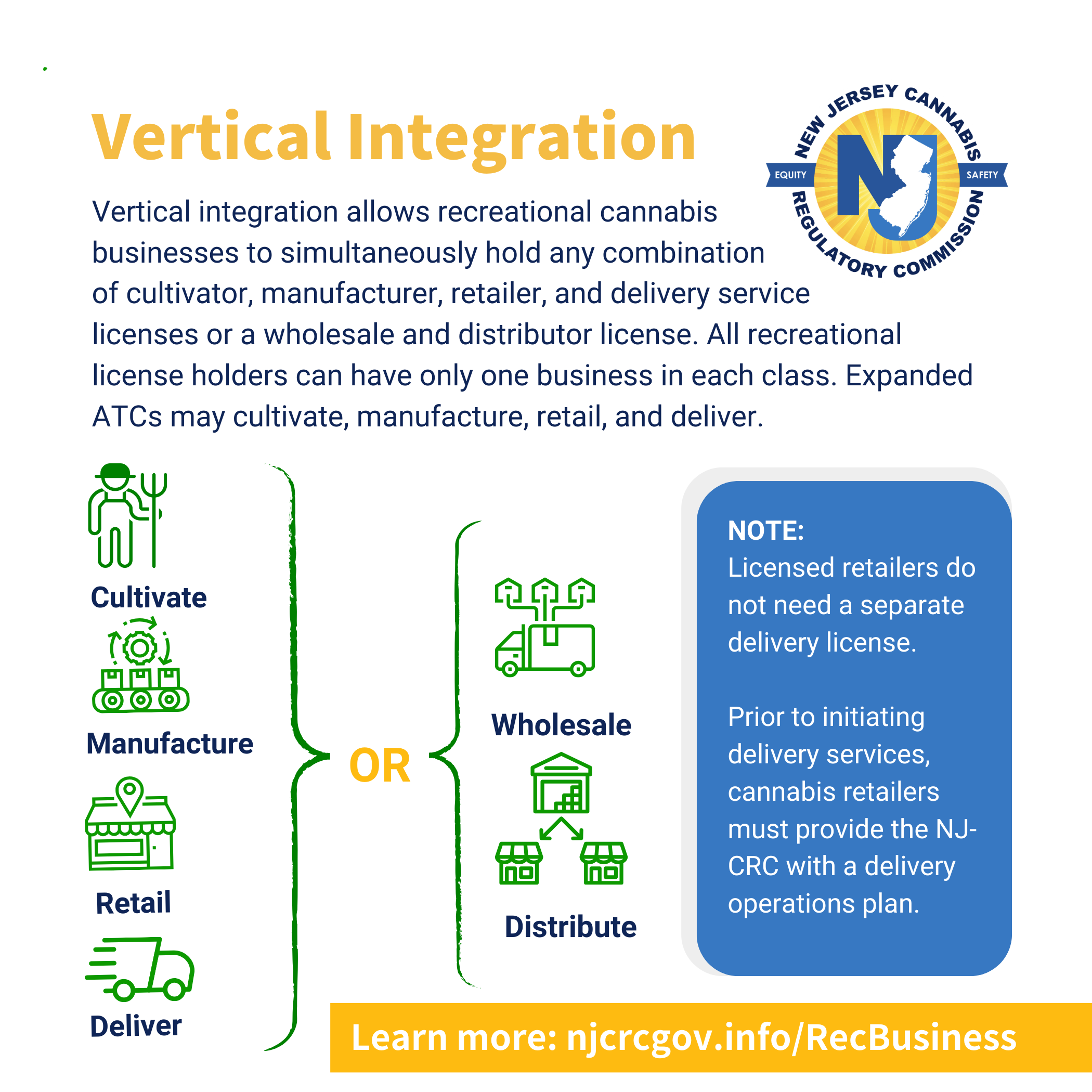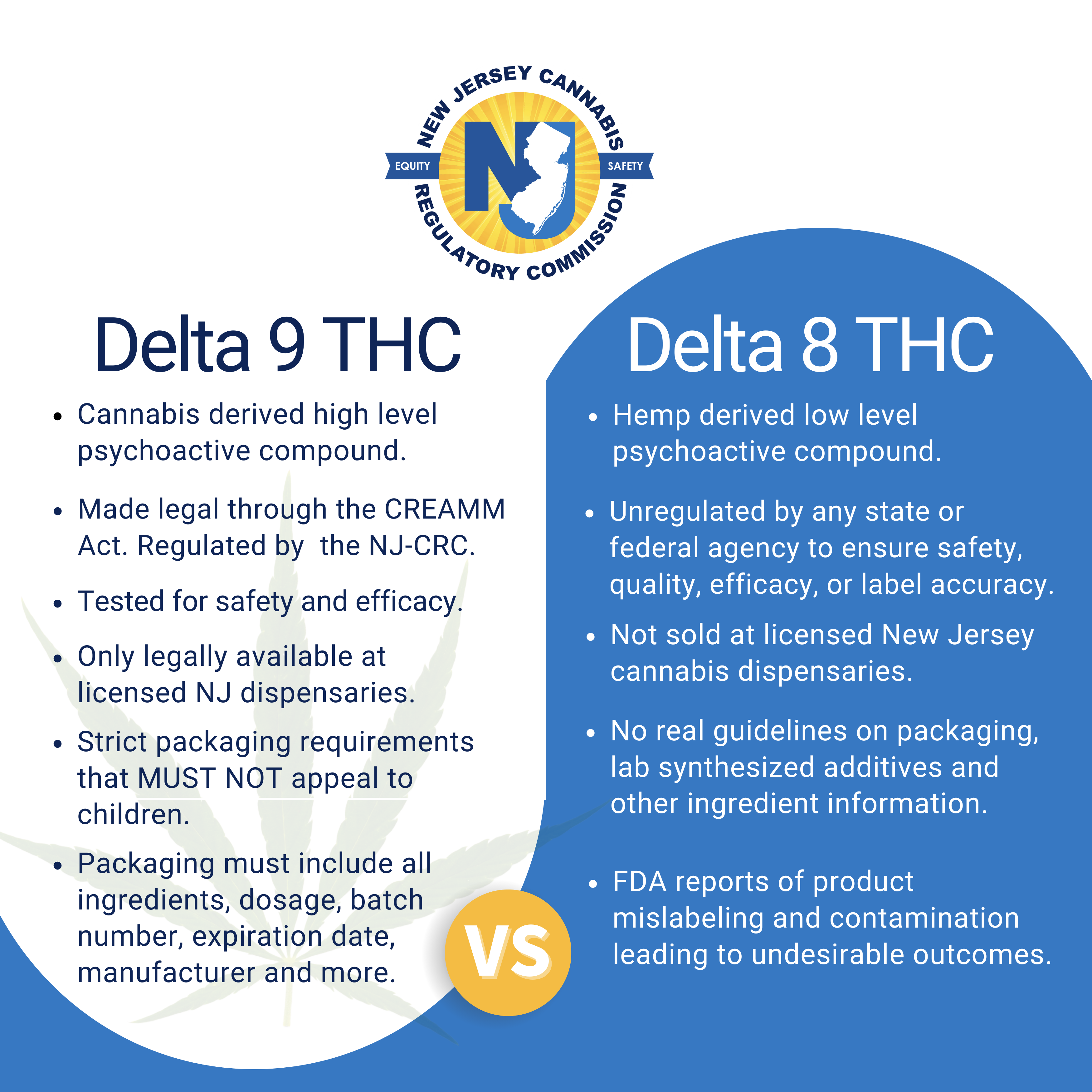
We are proud to reflect on 2024 - a year marked by growth, equity and impact. We expanded our public outreach and increased access to information about safe cannabis use. We took significant steps to ensure the state’s cannabis market remains equitable, transparent, and thriving.
Agency Updates
In April, Christopher Riggs transitioned from his role as chief counsel to that of acting executive director at the New Jersey Cannabis Regulatory Commission following Jeff Brown’s impactful three-year tenure. Kelly Anderson-Thomas, who was our deputy executive director, also left the agency in April. Both played instrumental roles in launching the state’s adult-use cannabis market, laying the foundation for its continued growth.
Over the course of the year, the agency grew its workforce by approximately 15%. Website enhancements include new pages for Government Relations, Compliance and Investigations, a page outlining the business application process step-by-step, and a dedicated product recalls and advisories page. The Government Relations page features a searchable chart of municipalities that opted into the adult cannabis market, filters municipalities by county, and breaks down the types of business classes each municipality permits in their jurisdictions.
February marked the launch of CRC High Points on Spotify, a podcast about cannabis, the cannabis market, and cannabis use in the Garden State. The CRC High Points podcast reflects our commitment to connecting with and informing the public. These changes signify progress and our dedication to advancing cannabis regulation in New Jersey.
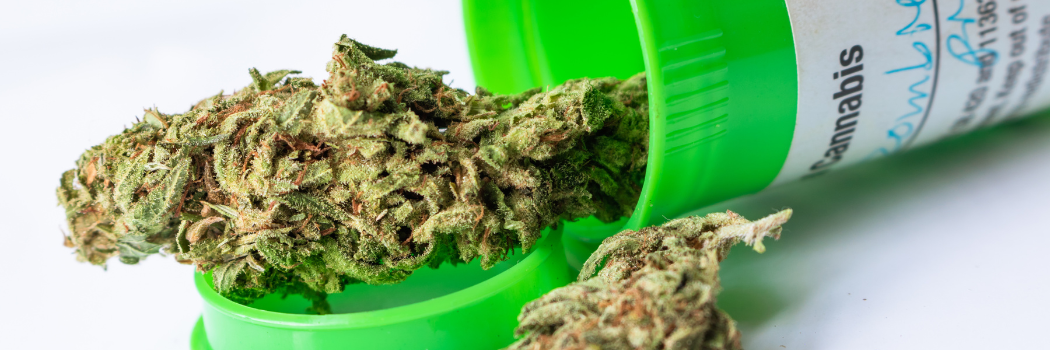
Medicinal Cannabis Program
In 2024, the NJ-CRC registered 24,646 new patients, with anxiety being the most common qualifying condition, accounting for 39% of all patients. During this period, the program issued 33,786 physical cards and 1,467 digital cards, which became available in June 2024. Digital cards are free, while physical cards now cost $10.
Clinical Registrants Clinical registrant licenses allow organizations to collaborate with academic institutions in researching the medicinal benefits of cannabis. These partnerships are aimed at promoting scientific studies that can enhance patient treatment protocols. Clinical Registrants will be able to grow, manufacture, and dispense medicinal cannabis and medicinal cannabis products to qualifying patients and designated institutional caregivers. The regulations for clinical registrant licenses have been established, and the next step is for the Board to approve the Notice of Applications.
MCP Clinics For the second consecutive year, we hosted Medicinal Cannabis Program (MCP) registration clinics as part of our ongoing efforts to support the program. These clinics, which took place in Trenton, Newark, and Atlantic City, provided valuable services to assist patients and caregivers with MCP registration and renewal. Our services included guidance on new registrations and renewals, support for document submission, assistance with caregiver changes and address updates, and processing payments. More than 55 patients received their MCP cards at the clinics and dozens others received information on the program.

Government Relations
This year, we reached a milestone of having at least one operational cannabis business licensed in every New Jersey county, contributing to the economies of more than 200 municipalities. We currently have 206 municipalities in New Jersey that have allowed at least one class of cannabis businesses, which is about 36% of the state’s 564 municipalities. The agency also participated in the League of Municipalities Conference in November. Commission chair Dianna Houenou and acting executive director Christopher Riggs participated in a panel and answered questions from municipal leaders about managing cannabis operators in their jurisdictions. NJ-CRC staffers continued those conversations with dozens of conference attendees who visited our booth.
As we move forward, we remain committed to working collaboratively with municipalities across the state to ensure our communities are safe, our economies are robust, and a regulated and responsible cannabis industry serves our residents.
Commitment to Equity
We continue to exceed all statutory benchmarks for a diverse and inclusive marketplace. As of October, 47% of annual license awardees are majority minority-owned businesses, and 44% are majority woman-owned or majority disabled veteran-owned. Additionally, 16% of awards went to social equity businesses. We approved 620 licenses for Hispanic or Latino business owners. While just 10% of state businesses are Black-owned, 17% of licenses went to Black-owned entities. Similarly, 13% of licenses were awarded to Asian-owned businesses despite them also comprising only 10% of state businesses.
Applications and Licensing
In late September, medicinal cannabis business operators were integrated into the licensing platform used by adult-use operators. Now all the state's operators use a single system to apply, renew, and submit required docucments.
As of November 25, 2024:
- 2,805 applications have been submitted
- 115 applications are under review in the Office of Licensing
- 361 applications are pending resubmission following cure
- 1,524 conditional recreational licenses approved
- 395 conditional-to-annual conversion licenses approved
- 220 annual licenses approved
- 80 expanded ATCs approved
- 338 total operating adult-use licenses and medicinal permits issued
- 180 applications are under review in the Office of Compliance & Investigations
Additionally, three board committees held topic-focused roundtable discussion to get public input. The Product Safety, Packaging, and Labeling Committee met with participating healthcare providers and active patients to learn opinions on current allotments and purchase limits. The Public Engagement and Education Committee met with operational businesses, awardees, and patients to learn opinions on the number of ATCs owned, interest in adult-use to medicinal expansion, vertical integration for all ATCs, and the number of locations allowed for each ATC. The Permitting and Licensing Committee held three roundtables with social equity business applicants and awardees, microbusiness applicants and awardees, conversion applicants, and operational and non-operational businesses. These sessions provided the committee with valuable, first-hand insights, experiences, and suggestions about the various aspects of the current licensing and permitting process to help improve and enhance the process as we move forward.
Each session allowed board committees to directly engage with key stakeholders, fostering a better understanding of their needs, challenges, and suggestions. Holding the focus groups provided invaluable insight to help the NJ-CRC Board make informed decisions grounded in stakeholder experiences and perspectives.
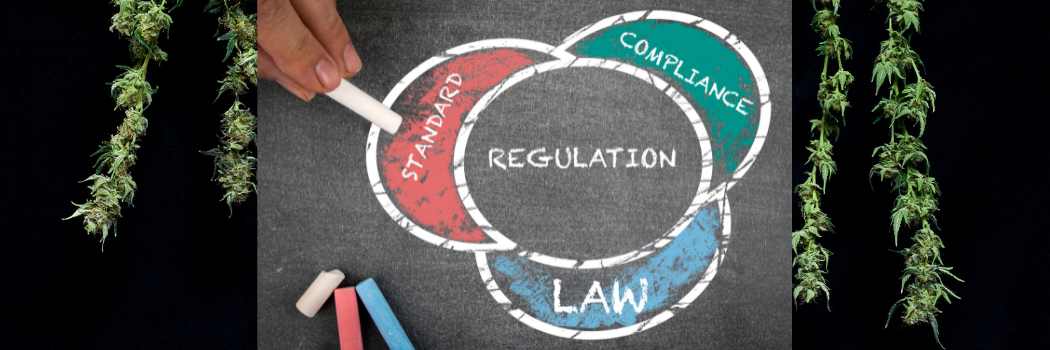
Compliance and Investigations
In 2024, we took several enforcement actions against cannabis businesses in the interest of consumer safety.
Notably, in July, we issued a recall for cannabis flower and pre-rolls from one operator. Additionally, the Compliance Unit of the Office of Compliance and Investigations conducted 217 investigations based on complaints received or reviews of business practices during on-site visits. Out of these, 14 Notices of Violation (NOV) were issued. Most complaints were resolved through communication with cannabis businesses, helping them return to compliance without needing further penalties. The issues included failure to keep data consistent between tracking systems (Metrc and Point-of-Sale), problems with packaging and labeling, allowing on-site cannabis consumption, not storing products properly, and not effectively supporting the medicinal cannabis patient population.

The Market
As of November 2024, there were 338 cannabis business licenses and permits currently in operation: 251 for adult-use (including expanded Alternative Treatment Centers) and 87 for medicinal purposes. In the first three quarters of 2024, the medicinal cannabis market generated $66,927,020, while the recreational market generated $722,921,233 during the same period. The overall industry generated $43,290,543 in tax revenue and collected $2,248,270 in Social Equity Excise Fees.
Flower is the top-selling product, accounting for just over 41% of the market. Vape cartridges rank second, making up 29%, while edibles represent 14%. The remaining 17% of the market consists of various products, including raw pre-rolls, concentrates, shakes and trim, capsules, pills, as well as lotions, creams, and tinctures.
The Social Equity Excise Fee (SEEF)
The SEEF is collected from cannabis cultivators when they sell or transfer products to other license classes. The funds generated from this fee must be allocated to initiatives that support education, economic development, and social services for individuals and communities negatively impacted by cannabis criminalization. Each year, the NJ-CRC gathers input from the public and submits a report to the legislature on the proposed allocation of funds.
In 2024, the SEEF rate was set at $1.24 per ounce. During the December 2024 meeting, the Commission voted to increase the SEEF to $2.50 per ounce of usable* and unusable* cannabis. This rate aims to balance revenue for social equity programs with affordable cannabis for consumers and sustainable businesses. As of the end of the third quarter of 2024, the SEEF has generated a grand total of $6,140,461.
The new SEEF rate will took effect on January 1, 2025.
*Usable cannabis refers to cannabis that is ready for sale and consumption, such as flower, while unusable cannabis refers to cannabis that is not in its final consumable form and is intended for further processing, such as stems and leaves.

Safe-Use campaign
The NJ-CRC's inaugural safe use campaign, 'Cannabis Smart. Cannabis Safe.' focused on several key areas: deterring youth use, encouraging abstinence for pregnant individuals, promoting caution among seniors, discouraging driving under the influence, advocating for safe practices, and dispelling misconceptions. The campaign employed a multi-channel strategy, delivering messages through social media, digital platforms, billboards, and community engagement points such as barbershops and salons.
Impressions from social media and online ads targeting Teens and Parents of Teens reached approximately 28 million. Teens, in particular, achieved a click-through rate (CTR) of 2.25% for display channels, which is 22.5 times higher than the industry benchmark. Overall, direct targeting of teens generated around 3 million impressions across various channels.
Engagement among parents of teenagers was strong due to branded email advertisements, resulting in a total of over 21 million impressions.
The campaign achieved more than 50 million impressions, with video and audio content garnering just over 9.5 million completed views and listens.
*Campaign numbers as of June 2024
Consumption Areas
In the final meeting of 2024, the Commission approved the Notice of Application Acceptance (NOAA) for consumption areas. Applications opened on January 2, 2025, for retail businesses designated as Social Equity – this includes owners with cannabis-related convictions or those who have lived in Economically Disadvantaged Areas.
On April 2, 2025, all other microbusinesses and Diversely-Owned dispensaries can start applying. Diversely-Owned means businesses that are minority-owned, woman-owned, or disabled veteran-owned and certified by the New Jersey Department of Treasury. On July 2, 2025, all other Class 5 retail operators can submit their applications.
The endorsement application fee is $1,000 for all businesses: $200 to apply and $800 once approved. The annual licensing fee is set at $1,000 for microbusinesses and $5,000 for standard businesses. The NJ-CRC will maintain an up-to-date list of all approved cannabis consumption areas on its website.
Cannabis consumption areas must comply with strict regulations to ensure public safety. These areas are restricted to adults aged 21 and older and are prohibited from allowing alcohol, tobacco, or unregulated cannabis use. Facilities must implement odor control measures, enforce consumption limits, and provide clear signage outlining the rules for patrons. All businesses seeking endorsements must demonstrate their compliance with these standards and show municipal approval in their applications to the Commission.
Looking ahead to 2025, we remain committed to collaboration and inclusivity as we continue building a responsible cannabis market that serves all New Jersey residents.
We make it easy to stay informed about cannabis in New Jersey. We encourage you to stay engaged by participating in public meetings -- either by registering to speak or leaving written comments. Missed something? You may find all public meeting and SEEF hearing recordings here. Check out CRC High Points podcast and follow us on Instagram LinkedIn, X, Facebook and YouTube. Be sure to also check out our Safe Use page for cannabis safety information.
DISCLAIMER
The information presented in this blog post is for informational purposes only and should not be used as a substitute for professional medical advice, diagnosis, or treatment. Seek advice from your physician or other qualified healthcare provider if you have any questions about a medical condition or incorporating cannabis into your treatment. Do not ignore professional medical advice or delay seeking it due to anything you may have read on this website.
Previous Blog Posts
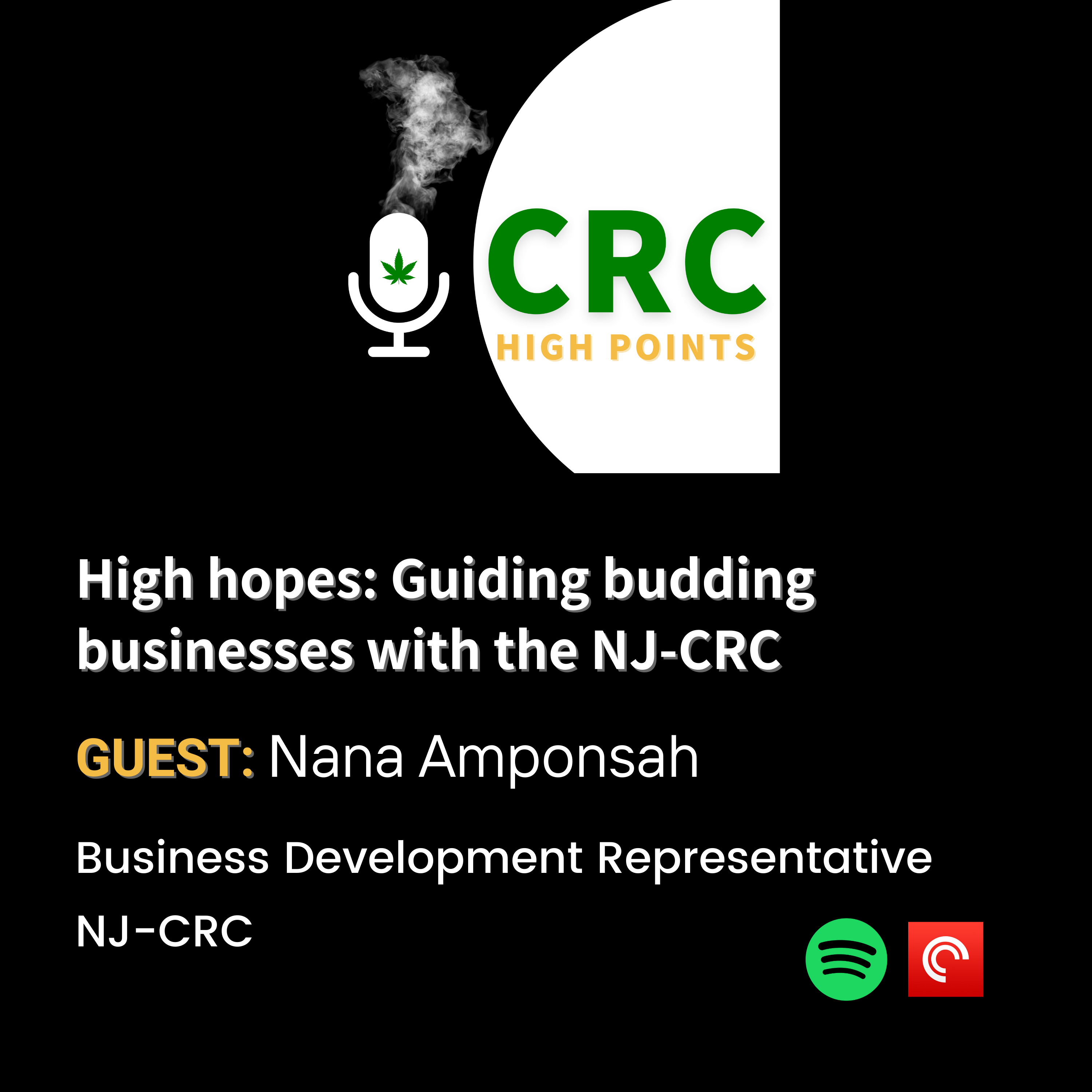
High Hopes: Guiding budding businesses with the NJ-CRC
09/5/2025
Nana Amponsah, business development representative at NJ-CRC, talks about her role, as part of the Office of Diversity & Inclusion, in identifying challenges cannabis entrepreneurs face, providing assistance to applicants and new businesses wherever possible, and acting as a liaison between cannapreneurs and other state agencies that provide support. She also explains how NJ cannabis business development differs from other fields, emphasizing the continuous need for support.

Tips for SMART Gatherings This Holiday Season
11/26/2025
The holidays are a time for food, fun, laughter, and connecting with the people who make life sweeter. And as more adults in New Jersey choose to enjoy, or gift legal cannabis during the season, the NJ-CRC has launched its second safe-use campaign, S.M.A.R.T., to help keep celebrations (relatively) stress-free. S.M.A.R.T. is an easy way to remember the basics of responsible cannabis use, especially when travel is constant, roads are chaotic, homes are busy, and curious little ones are wandering.
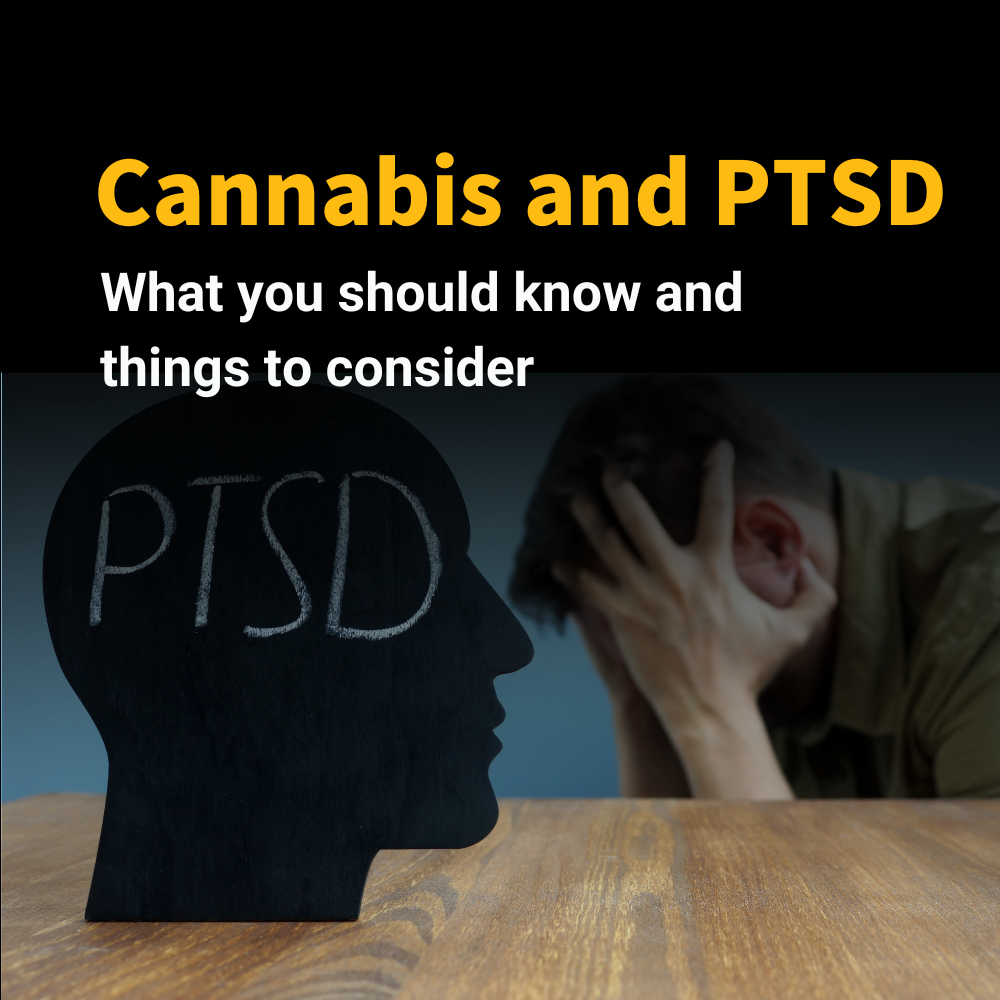
Cannabis and PTSD
09/23/2025
Post-traumatic stress disorder (PTSD) is a mental health condition that can happen after someone has lived through distressing or life-threatening events. People with PTSD may have disturbing flashbacks, nightmares, or be overly guarded. It can cause trouble sleeping, mood swings, or disruptions to daily life. This mental health condition is the third most common condition participants in New Jersey’s Medicinal Cannabis Program are treating with cannabis Many patients, including veterans, turn to cannabis when other treatments are not enough or don't work.
 Official Site of The State of New Jersey
Official Site of The State of New Jersey
